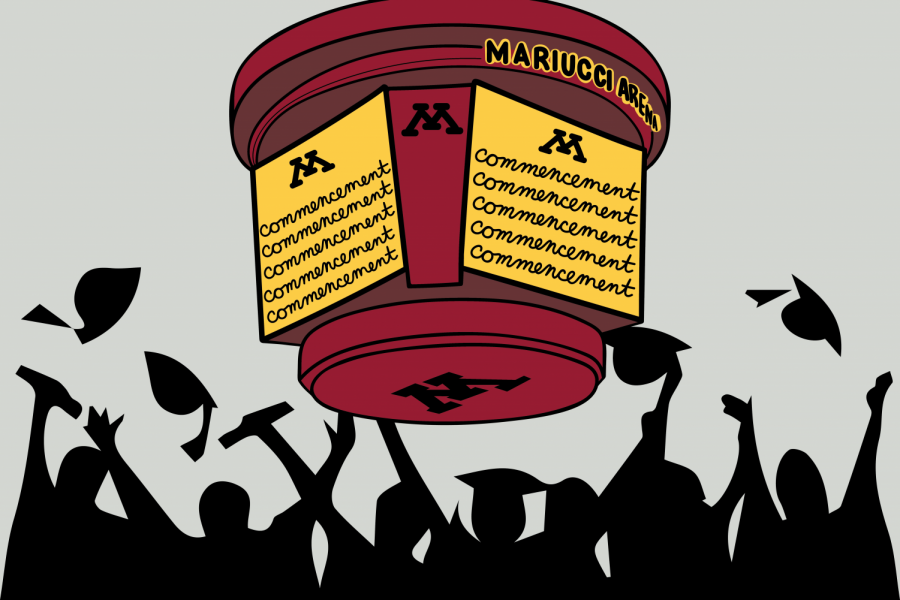As the end of the semester approached last month, the usual foot traffic around campus slowly faded, replaced by grinning, gown-clad groups of graduates flocking to the most iconic and picturesque sites on and around campus to take photos and celebrate.
Even for a graduating class with a quiet and uneventful experience at school, there would be plenty of cause for excitement. The past 10 years have seen a massive rise in stress and mental health disorders in college and university students nationwide.
Tuition keeps going up.
While average student debt nationwide has plateaued, this is due, in large part, to the desperation of students doing everything and anything in their power to get out with as little debt as possible.
A quarter of full-time undergraduates nationwide work at least 20 hours a week, and universities are beginning to meet the demand for students looking to get out in less than four years with new programs designed to do exactly that.
Meanwhile, systematic disparities continue to hit marginalized communities disproportionately hard, both in terms of making it to graduation and even making it through the door in the first place.
Only 36% of Black 18- to 24-year-olds, and only 19% of American Indian and Alaska Native 18- to 24-year-olds are enrolled in college, compared to 42% of white 18- to 24-year-olds. Meanwhile, Latinx and Black students are 20% and 30% less likely, respectively, to complete a four-year degree than white students.
In this day and age, making it to commencement is still an accomplishment.
The past few years have been particularly challenging. The class of 2023 spent the better part of their first two years under the shadow of COVID. They lived through the uprising following the murder of George Floyd.
On campus, they have watched as their tuition has gone up, their staff has threatened to strike over low pay and poor treatment and their administrators have lost credibility in real time.
Now, over the last year, they were given a front-row seat to this dynamic of administrative fumbling playing out one last time over the University’s plans for commencement.
The first sign of trouble came from a cryptic email in October, sent out by each dean to their respective college, noting that with the closure of Mariucci Arena — traditionally the venue for college commencement ceremonies — the University would instead pursue a joint conferral of degrees at Huntington Bank Stadium.
Understandably, this raised questions, foremost among them: would students get the opportunity to cross the stage? The answer, in a campus-wide follow-up from Provost Rachel Croson, turned out to be a resounding no.
The backlash was swift.
In memorable coverage from the Minnesota Daily at the time, seniors slammed the administration for failing to provide even the simplest recognition to its students. Nor were they particularly satisfied with the announcement, months later, the University would be making it up to them by offering them the chance to schedule their own time for a separate stage crossing, albeit at a different low-profile location and time.
Although it could not have been intentional, the issue makes for an unwitting paradigm of shifting landscapes in higher ed, a move away from hidebound academic tradition toward a more individualist, corporatized approach. This has often been exemplified in the academic realm with things like grade inflation, emphasis on lucrative research over classroom education, increased use of term faculty and more.
The trappings of commencement itself carry long history with them: the ceremonial mace, the Latin honors, even the gowns themselves. This symbolism, however, has now been crossed with a “Build-A-Graduation” approach: hit up the department celebration, schedule a stage crossing with your besties and convince Grandma Ann that the conferral isn’t going to be worth the drive down from Crosslake.
The stiff, collectivized formality of a classic grad ceremony has been supplanted with a freshly 21st century outlook — in other words, commencement as a commodity. The best part for admin? Regardless of which ceremonies and events you attend, your money is already in their pockets.
This does not mean conventional grad ceremonies, and indeed many of the things we associate with academic tradition, are automatically worth preserving. To want to bring academia back to the “good old days” neglects to acknowledge who those days were and were not good for.
At the same time, the attempt to spin a scheduling slip-up into “additional opportunities for individual recognition,” as Croson’s January email claimed, is both insulting to students and depressingly predictable.
As senior Rowan Halm said in prior coverage, “It felt more like it was celebrating the University than the students, which I wasn’t necessarily surprised by.”
But in a new Gilded Age of privatization, corporate thinking, and administrative self-aggrandizement even in public institutions, can we say we expected anything else?
At the end of the day, students got the last word in. When President Gabel came up to speak at the undergraduate ceremony, the crowd booed.














